X
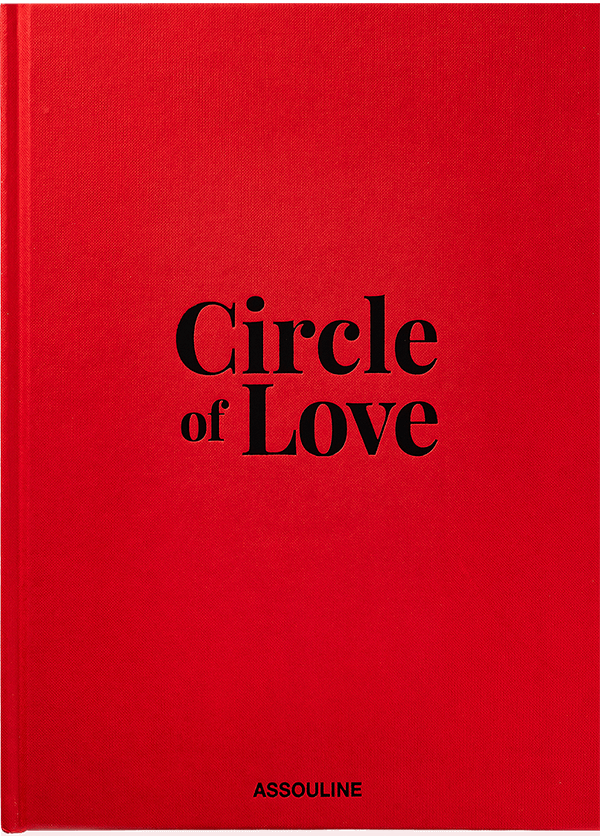
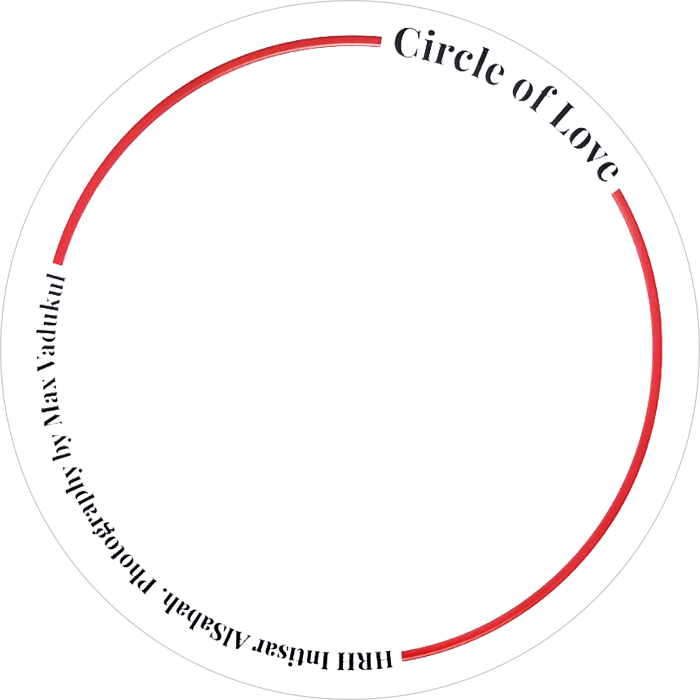
Dr Amal Al-Malki is a Qatari scholar, educator, and advocate of women’s rights and gender equality.
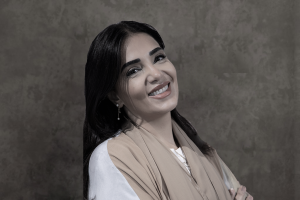
“What Intisar Foundation has done is exemplary in such a short time.
The wonderful aspect about its work is that it’s the clear identification of their cause and the direct way of tackling it.
If not the only, it is the first to focus on women’s mental health and offer new modalities to support women in conflict-zones with what they need not just to recover, but also to be agents of Peace in their own communities.
The one million goal is admirable enough.”
Please share with us your overview of the current state of women’s empowerment in the Arab world, especially in the MENA region?
There are many efforts for empowerment across the MENA region that target women as their main beneficiaries, some are state-led, some are NGOs, and very few are philanthropic. Unfortunately, there is an obvious disproportion across different nations, and sometimes within one.
We are plagued in the MENA region with constant conflicts of different sorts. We know that women are always the first victims. However, we see a clear dichotomy across women’s realities between the “wealthy” and the economically challenged nations. Women’s needs, sometimes the basic needs, are not met or secured in some parts of the MENA. Therefore, it would be difficult to take stock of the so-called “women empowerment” efforts, when what we need in many cases is to create the infrastructure, whether economic, political, or cultural, for women to thrive.
“I would like to see women leading the way and taking over from the State, because women understand very intimately what other women need. We need women at different levels of the “support” channels: from assessment, to planning, to execution.”
What improvements would you like to see in this area?
I would like to see women leading the way and taking over from the State, because women understand very intimately what other women need. We need women at different levels of the “support” channels: from assessment, to planning, to execution.
Collaborations are also extremely important between women of affluence, and academics, as well as activists, to ensure that we build sustainable support channels for women. While some state-led projects serve certain national agendas (influenced by financial and political KPIs), the agenda for empowering women should stem from higher ethical values based on human rights and should be modified as we go on to meet long-term and current needs.
“I am a women’s right advocate. I see my activism as an extension of being an academic. It is so important to point that it has been essential for me as a scholar to contribute as an Arab woman to a discipline that had been mainly dominated by white academics who have ‘studied and written” about women in the MENA for decades. There are more women and more scholars from the region now who are setting the records straight.”
What is your approach to supporting women’s empowerment processes in the MENA region?
I am a women’s rights advocate. I see my activism as an extension of being an academic. It is so important to point out that it has been essential for me as a scholar to contribute as an Arab woman to a discipline that had been mainly dominated by white academics who have ‘studied and written” about women in the MENA for decades. There are more women and more scholars from the region now who are setting the records straight.
I have founded the first women’s studies program in Qatar, and it has been offered as a master’s degree since 2017 and attracts women and men from the region. Beyond academia, I am active in advocacy which takes multiple forms depending on the context of course. I have founded “Women of the Middle East Podcast”, which I consider an extension of my book “Arab Women in Arab News: Old Stereotypes and New Media” (Bloomsbury, 2012). The podcast is set to create new narratives about women of the Middle East. I also serve on the steering committee of Arab State CSOs and Feminists Organizations Network which represents 68 organizations from 12 countries. I have also recently established a training and consultancy company that aims to work on conducting studies and accordingly tailoring training for women in the MENA region and intends to channel its revenue to training girls and women from economically challenged areas.
What are the top three lessons you have learned through being a strong activist for women’s rights?
I have learned early on that success looks differently for different causes, and that women’s rights are deeply enriched in rigid systems, which make them harder to achieve. Therefore, success should be measured differently within different contexts. I have learned that success is achieved when women collaborate with other women and support their efforts. Success can be when one woman is supported to claim long-lost rights and made to feel safe and worthy. Success is when we “as women activists” take care of our mental health so as not to be run down by the disappointments that surround us in our activism. I have also learned that everything we do now, will yield its fruits even if it wasn’t in our lifetime.
What role does education play in this field?
Education plays a pivotal role in empowering women and in the call for gender equality. It builds the stamina from within, by equipping women with knowledge about their rights, and offers the tools and techniques to claim them. Education also aims to change long-held gendered notions of women’s inferiority by qualifying the younger generations, women, and men, to strive to build more just and equitable societies.
Please give us your opinion on the Intisar Foundation’s work and achievements since its inception in 2019 until today.
What Intisar Foundation has done is exemplary in such a short time. The wonderful aspect about its work is that it’s the clear identification of their cause and the direct way of tackling it. If not the only, it is the first to focus on women’s mental health and offer new modalities to support women in conflict zones with what they need not just to recover, but also to be agents of Peace in their own communities. The one million goal is admirable enough.
If there is one thing, I would love to see the foundation doing, is to collaborate with feminist organizations in the region, who can benefit largely from tapping into these empowered women and build on the skills they have achieved to heal.
What do you consider to be the most pressing challenges faced by Arab women today/in 2023, especially those affected by war and violence?
Women and children are the first victims of war and violence. Sexual violence is one of the scariest yet real violations that women face when the systems that were there to protect them tremble. The vulnerability of women during a crisis of any sort is exacerbated by alienation and disconnect, which the digital gap imposes. Women who cannot connect and reach to whomever can hear their cries for help, lose hope and will to continue. I specifically worry about girls and young women, who are left behind in terms of education and digital connectivity. The knowledge and connectivity deficits that Arab women face in the region contribute drastically to their oppression and violation. And it should be the responsibility of all to make sure that women are educated well and connected digitally, which offers them information and lines of support.
What would be your top three pieces of advice for Arab women in 2023?
I believe that the three enablers for women are education, employment, and political empowerment. Arab women are less educated in the MENA than in other parts of the world; their economic contribution to their national economies is less; and the percentage of women political leaders is very low as well. This needs to be changed. So, my advice to women is to get educated and support other women to get an education as well.
Women of affluence, academics, and activists need to put their hands together and create new curricular for women that would push them forward in the quest for empowerment and gender equality, rather than the existing ones that impede their progress. Women in business need to support and guide other women to make their own livings, because when a woman can provide for her family and make a living for herself, you ensure that this woman is able to survive in any context she is put in.
And finally, we need more women leaders and decision-makers who don’t shy away from imposing their feminist agenda to elevate the lives of other women.
“I believe that the three enablers for women are education, employment, and political empowerment. Arab women are less educated in the MENA than in other parts of the world; their economic contribution to their national economies is less; and the percentage of women political leaders is very low as well. This needs to be changed. So, my advice to women is get educated and support other women to get an education as well.”
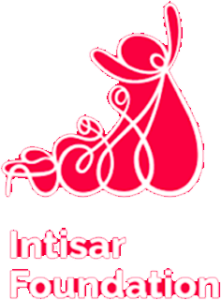
Officially registered as a humanitarian organisation with the Charity Commission for England and Wales in 2019, Intisar Foundation is the first charitable organisation in the Middle East dedicated to providing psychological support programmes of drama therapy to Arab women affected by the brutality of war and violence.
Intisar Foundation
McCarthy Denning, Suite 102,
70 Mark Lane, London, EC3R 7NQ
UK Registration Charity Number: 1182384
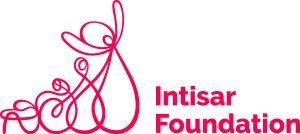
For more than a month, we are witnessing how international humanitarian law fails to protect Palestinian mothers and children.
Day after day, we have been lamenting and denouncing new acts of violence that brought injustice and the bemoaning loss of innocent lives in Gaza.
And yet, Palestinians in Gaza still face new perils with every next hour.
In writing this letter to the world as a demand for action to end this suffering, I join millions of others who have condemned the continued Israeli aggression and call for an immediate ceasefire.
We at Intisar Foundation also invite you to join us in working on preventing this trauma to linger and gnaw through another generation of Palestinians, and Arabs in general.
The mission of Intisar Foundation is to bring Peace to the Arab world through the psychological recovery of Arab women traumatised by war and violence, which can result in the women stopping the continued cycle of violence inflicted on or by them.
In this way, our work helps Arab homes traumatised by violence become more Peaceful again.
The ripple effect of this outcome can be that Peace flowcharts from one Arab home to another, from one Arab community to another, reaching and affecting our whole region.
In its very essence, therefore, Intisar Foundation’s work has always been about breaking the chains of trans-generational trauma.
While I salute people around the world confronting this injustice – from the world’s best universities, influencers, civil society activists and organisations, to ordinary people taking to streets and social media to raise their voices for Peace – I am now certain that we will not resolve the Palestinian crisis only with ceasefires, humanitarian aid, or rebuilding their homes and neighbourhoods.
We need to recover and protect the souls of current and future generations of Palestinians, and all Arabs, from this trauma.
To that end, Intisar Foundation is committed to turning this terrible man-made tragedy into a healing woman-led victory for Palestine, for humanity!
Intisar AlSabah
Leave a Reply